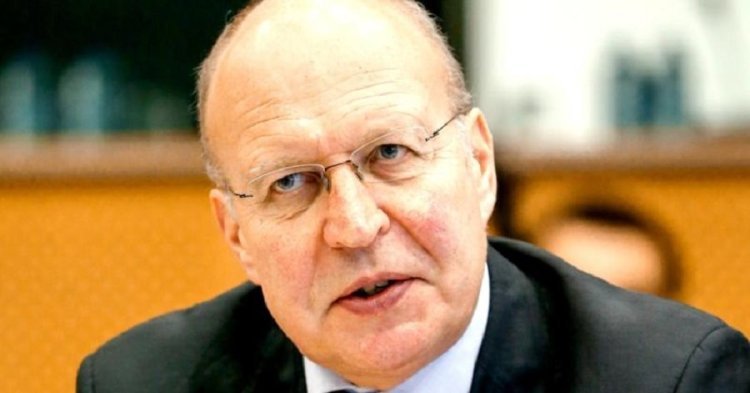The UK government appears committed to a Brexit, and indeed “hard Brexit” rhetoric is rife. Do you think it’s still possible that May’s government accepts the free movement of people post-Brexit?
No. The decision to leave the EU was in part motivated by fear of immigration. Mrs May will have to address this in her Brexit package or she will fail to keep her job. However, because Britain’s economy needs immigrant labour on a large scale, a large and complicated system of work permits will have to be put in place.
In your memorandum written for the European Parliament AFCO Committee in November, you argued that a ruling by the ECJ on the revocability of Article 50 could be required, triggering a process which would delay Brexit by several months. How do you think such a delay could affect the mood among Britain’s European partners?
Prevarication in leaving will annoy Britain’s partners, widening the risk that British nationalism will spread across the continent but also distracting the EU 27 from dealing with its other many crises. But the question of revocability is really important.
Legally, I am certain that the UK could change its mind and ask the European Council to drop the Article 50 negotiations. The EU 27 would need to be sure that the British were acting in good faith and not simply abusing the process. But what conditions would they try to impose on a prodigal UK? It seems inconceivable that things could just return to ‘normal’ and we could all continue as if nothing had happened. Especially after the Cameron hiatus, UK membership under current conditions is unsustainable. A British decision to try to stay on in the EU would probably spark new constitutional developments featuring a small federal core group of states around Germany and a larger outer confederal tier of which the UK would be leader.
François Fillon will be the candidate of the French centre-right in the upcoming presidential election. If he were to be elected, how would that affect the Brexit negotiation?
Not greatly. He is a Gaullist, and carries the usual baggage. Pro-European Council; anti-Commission and European Parliament; pro-CAP [Common Agricultural Policy] and aroused by historic suspicion of the English. (In present circumstances, one could hardly blame him.) But the Article 50 negotiations will be a collective effort led by the Commission. The European Council is bound to sign off on the deal at the end of the day because few leaders really want the British back in the club – and France under Hollande or Fillon will be first to wave them goodbye. Real French interests will only come into play in the second phase of Brexit, once a new relationship has to be crafted between Britain and Europe.
Can you identify European leaders who are particularly liable to cause difficulties in the negotiations?
The Poles will fight for the rights of the one million or so Poles who live and work in the UK. Spain will want a deal on Gibraltar, and Ireland on Ulster. There will be unexpected difficulties arising, but ultimately the EU 27 will want to facilitate Britain’s departure.
What do you make of the UK-US relationship under a Trump presidency?
I regard Trump as a neo-fascist. British suspicion of America, which is of long-standing on the right as well as the left, will rise.
Do you believe that 2017 will bring with it further threats to the liberal order in Europe?
All Europe will suffer if liberals lack self-confidence. Surely 2016 has taught everyone a lesson about the danger of resorting to referendums to solve problems which political parties and parliaments find too difficult to face. More referendums could kill the European Union. A stronger European Parliament committed to building federal political parties at the European level is the best thing to hope for and work towards.
You have advocated for transnational lists for European elections for a long time. Recently in the ALDE Party Congress, the motion for such lists was rejected. What are your thoughts on the topic?
The ALDE party has often been conservative and behind the curve of integration. Its two leading forces are the British Lib Dems who are only weakly ‘pro-European’, and the Dutch VVD who are really like British Tories. I’m afraid one can no longer look to these confederations of national political parties to lead us to the promised land of a united Europe. Transnational lists for a pan-European constituency is the next vital piece of the federal jigsaw to put in place. One looks to the European Parliament and Commission for leadership here.
What should a pro-European Brit do right now? Where do you see the British pro-European movement in five years’ time?
We should work now towards a decent package deal which gives the Britain the sense that it has ‘taken back control’ from Europe, and allow the British political system time to purge itself of nationalism. The UK should revert to Churchill’s policy of encouraging European federalism but from the outside.
When new generations come along and old people die off – which tends to happen – the atmosphere will change. But the key to an eventual re-entry of the UK into continental entanglements is that the federal experiment on the mainland is actually made to work well. All depends on the leadership of the EU 27. The emergence of a credible centre of power, run by a democratic government, producing public goods for EU citizens and strutting its stuff on the world stage, will appeal to the British – especially as their self-imposed phase of isolation will soon begin to pall. It’s not fun to be lonely. I would give it twenty years.


Follow the comments: |
|
